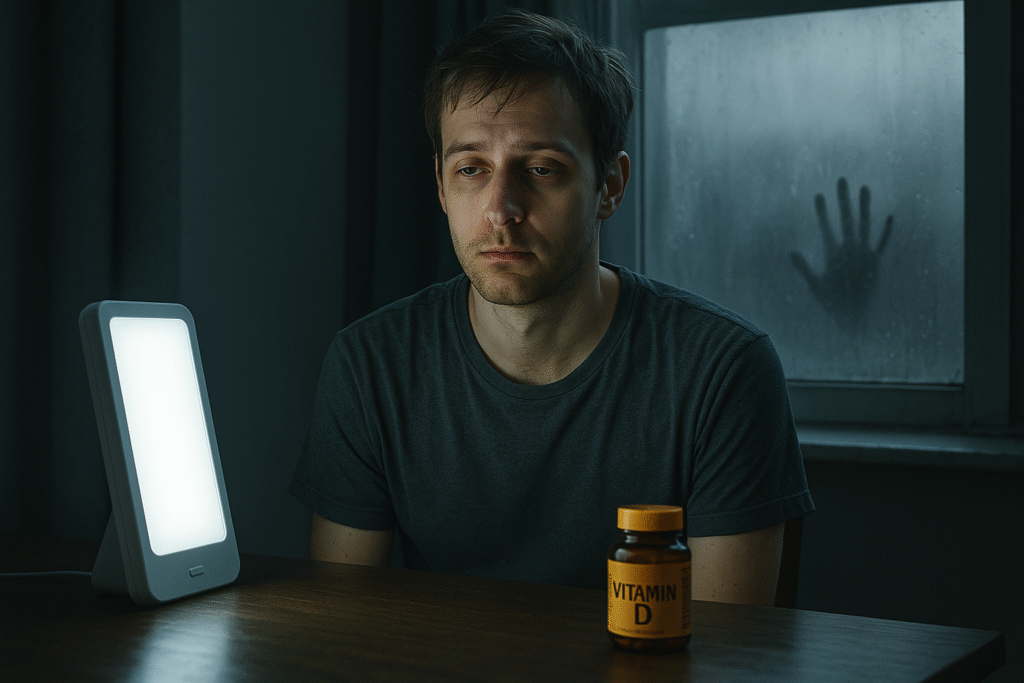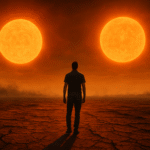Imagine waking up every day in darkness. No sunlight. Just artificial lights. This might sound like a science fiction story or a scene from a polar research station… but it’s a real question that scientists have explored. So, what really happens to your body if you go 100 days without sunlight?
The answer is: your body, mind, and health can suffer deeply. Let’s break it down in a simple way. You’ll be surprised how much sunlight actually controls our physical and mental health 🌍.
1. Vitamin D Deficiency Begins Early 🥚🦴
One of the biggest problems of missing sunlight is vitamin D deficiency. Our skin makes vitamin D when it’s exposed to UVB rays from the sun. This vitamin helps with:
- Calcium absorption (which keeps your bones strong)
- Immune system function
- Mood regulation
Without sunlight, after just a few weeks, your body’s vitamin D levels start dropping. After 100 days, you’ll likely face:
- Weak bones or joint pain
- Higher risk of infections
- Constant tiredness or fatigue
- Hair thinning
And in extreme cases, it may lead to rickets (soft bones) or osteomalacia in adults.
2. Sleep Becomes a Mess 🛌😵💫
Sunlight helps regulate your circadian rhythm—your internal body clock that tells you when to sleep and when to wake up. Natural light triggers the brain to release serotonin during the day (which keeps you awake and happy) and melatonin at night (which helps you sleep).
Without sunlight for 100 days:
- You may have insomnia (can’t sleep at night)
- Or excessive sleepiness during the day
- Your sleep cycle becomes confused, leading to poor rest and brain fog
It’s like being permanently jet-lagged ✈️.
3. Mood Changes and Depression 😔
Ever heard of Seasonal Affective Disorder (SAD)? It’s a form of depression caused by lack of sunlight, especially during long winters in cold places.
Now imagine going through over three months of complete darkness.
Symptoms people might feel:
- Sadness or hopelessness
- Lack of motivation
- Anxiety or irritability
- Withdrawal from friends or social life
- No interest in things they used to enjoy
Sunlight naturally boosts serotonin (the “feel good” hormone), so without it, many people experience real emotional pain.
4. Your Immune System Weakens 🛡️😷
Sunlight strengthens your immune system, partly because it helps produce vitamin D—but also because it supports overall balance in your body.
After 100 days without sun:
- You may get sick more often
- Minor infections take longer to heal
- Chronic inflammation increases
Studies show that people in sun-deprived regions or during long winters have weaker immune responses compared to those who get regular sunlight.
5. Your Skin and Eyes Can Change Too 👁️👤
Oddly enough, not being in the sun can affect your skin—just like too much sun does.
- Skin may look pale, dull, or greyish
- Some may get dry patches or rashes
- Eyes may feel strained or irritated due to lack of natural light
Your body also loses the natural glow that comes from a bit of healthy sunlight exposure.
6. Muscles May Weaken and Bones Suffer 💪🦴
No sunlight = no vitamin D = less calcium in your bones.
Over time, this can lead to:
- Muscle weakness
- Frequent bone pain
- Higher risk of falls and fractures
In elderly people, this becomes very dangerous. But even young people start to feel achy, stiff, and weak.
7. Your Mind Feels Slower 🧠🐢
Sunlight doesn’t just affect mood and sleep—it also impacts how well your brain works.
After 100 days in darkness:
- Your concentration drops
- Memory may feel fuzzy
- You struggle to stay focused on simple tasks
- Reaction times become slower
This mental sluggishness is linked to poor sleep, low vitamin D, and reduced brain chemical activity.
8. Social Isolation Worsens Everything 🧍♂️🧍♀️
In dark, sunless conditions—especially if you’re indoors or isolated—people also lose social energy. This means:
- Avoiding conversation
- Less eye contact
- Feeling “numb” or disconnected from others
- Risk of serious mental health issues
Human beings are social creatures. The combination of darkness + isolation is dangerous over time.
9. Heart and Metabolism May Be Affected ❤️⚠️
Recent studies suggest that a lack of sunlight could also increase risks of:
- High blood pressure
- Weight gain
- Type 2 diabetes
This happens because your metabolism slows down and your body can’t manage insulin or fat as well without enough vitamin D and sunlight-related hormones.
Real-Life Examples 🌍
People living in places like northern Alaska, Siberia, or parts of Scandinavia experience long periods of darkness in winter. They often report:
- SAD (Seasonal Affective Disorder)
- Disturbed sleep
- Low energy
To cope, they use light therapy lamps, take vitamin D supplements, and adjust their routines to stay mentally and physically well.
Can You Survive 100 Days Without Sunlight?
Yes, you can survive—but it’s not healthy or pleasant. You may feel like a completely different person: tired, sad, mentally foggy, and physically weak. The body needs sunlight just like it needs food or water. It’s not just about vision—it’s about balance, chemistry, and biology.
Final Thoughts 🌥️🧠
Sunlight is not just “nice to have”—it’s essential for being human. It supports our brain, our bones, our sleep, and our soul. Going 100 days without it shows just how powerful those daily rays are.
If you’re ever stuck in a dark environment—whether due to weather, a job, or isolation—remember:
- Use vitamin D supplements
- Try bright light therapy lamps
- Stay active and eat well
- Keep your sleep routine steady
- Reach out for support if you feel low
And when the sun comes back, go out and soak in a little sunshine—you’ll feel the difference ☀️🙂.

